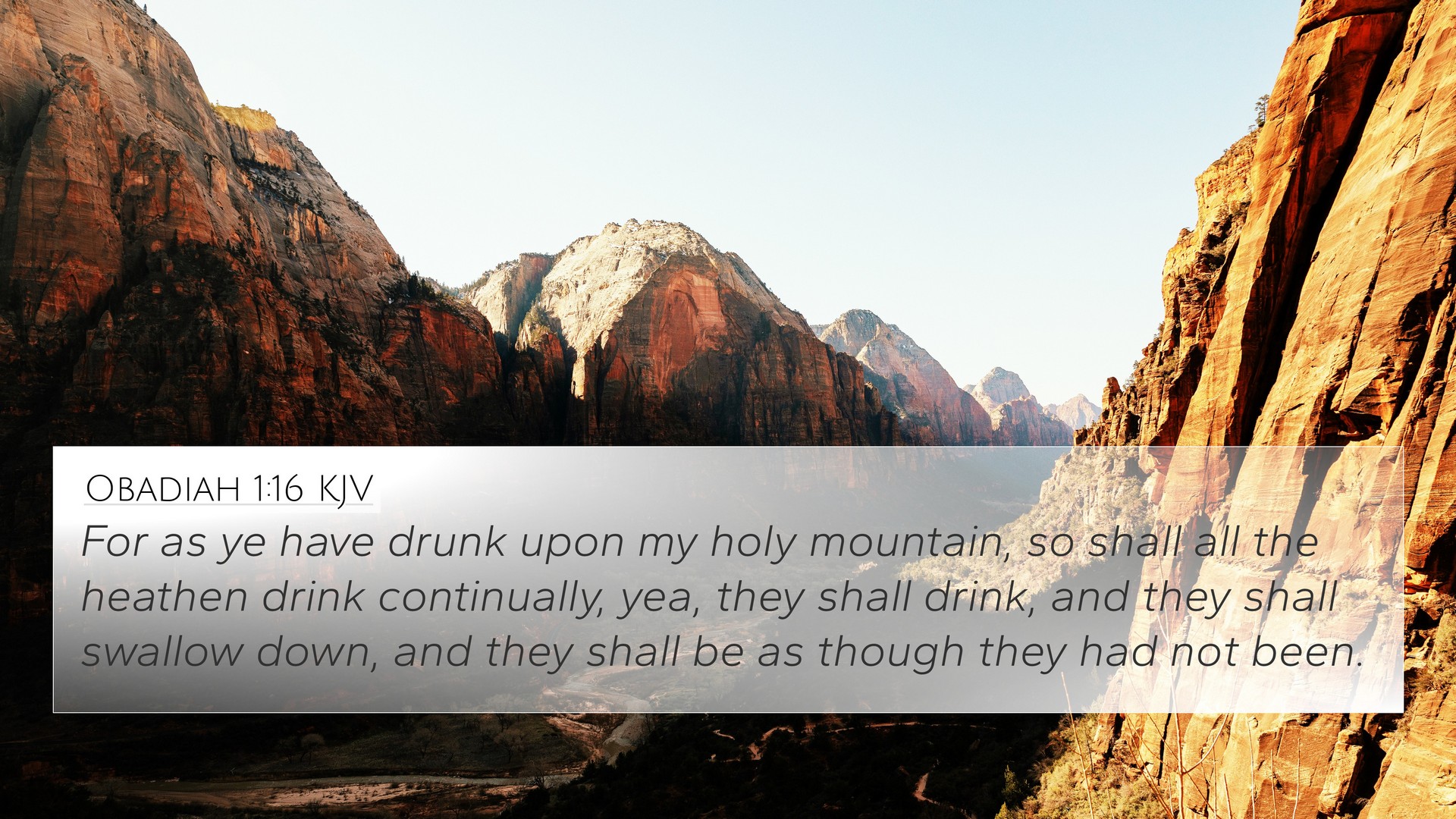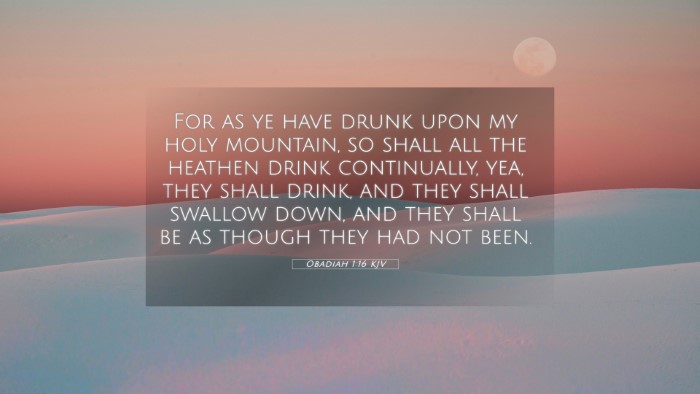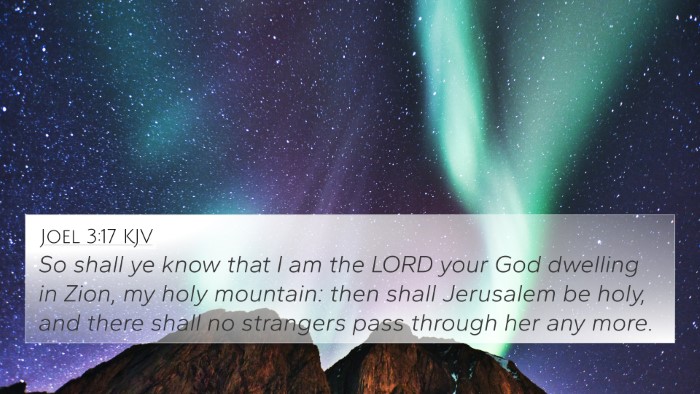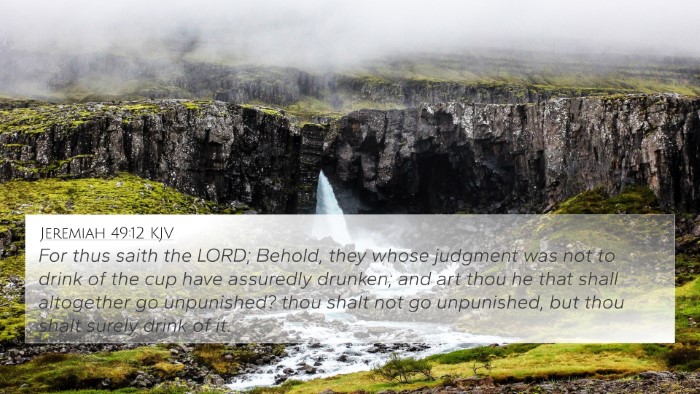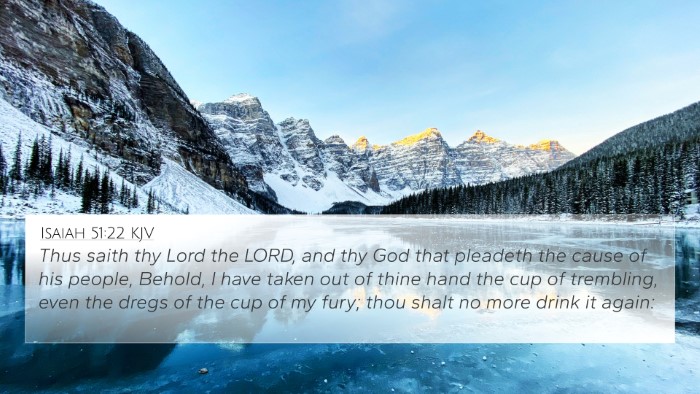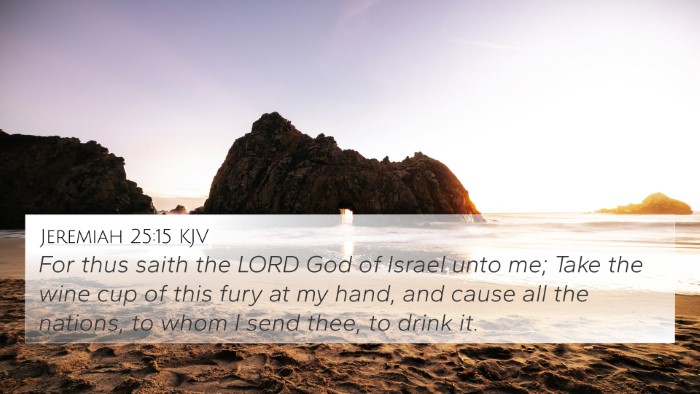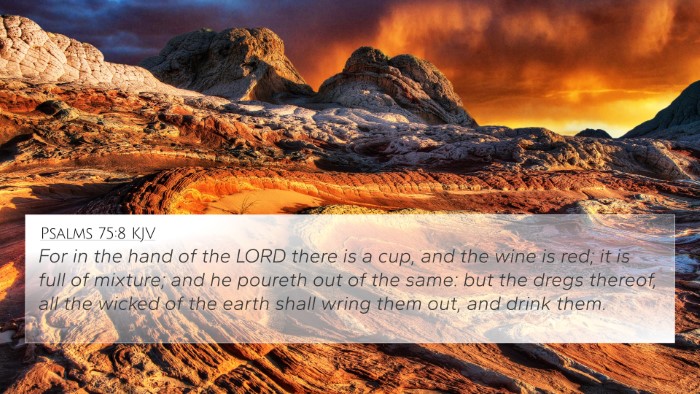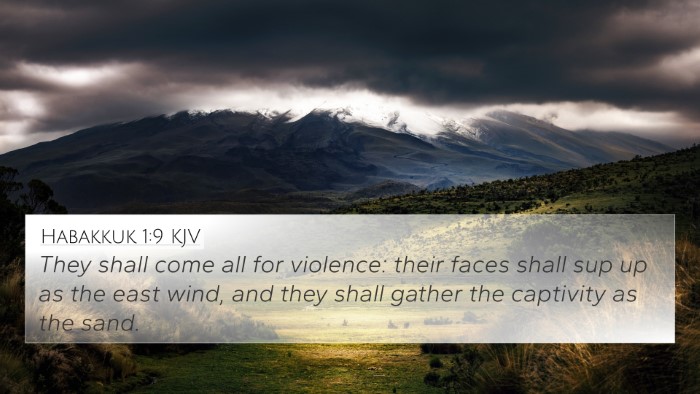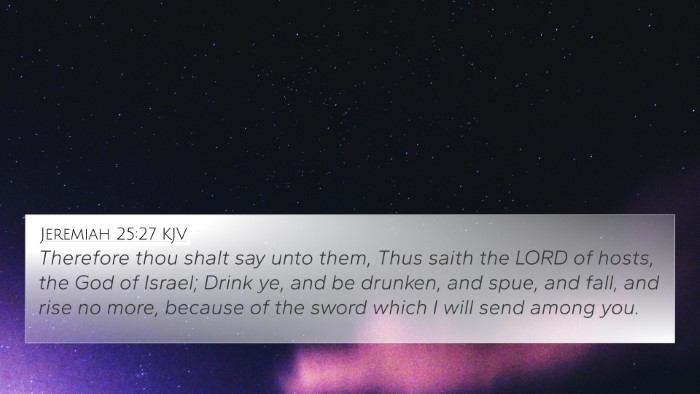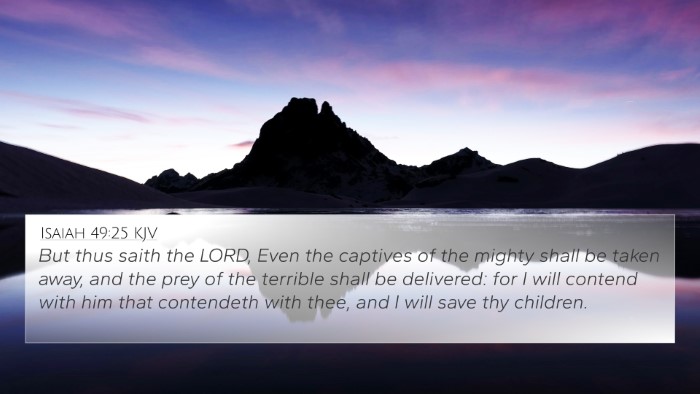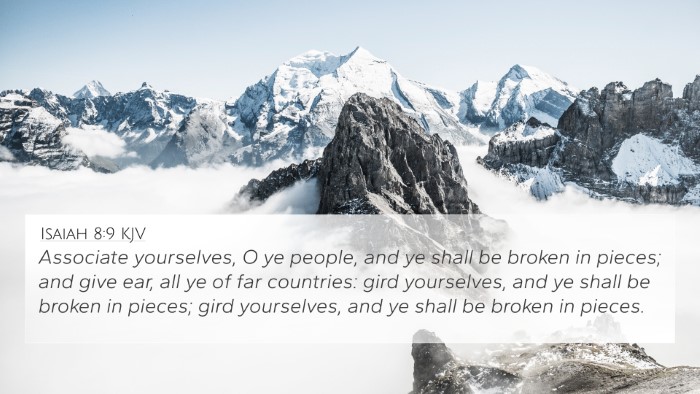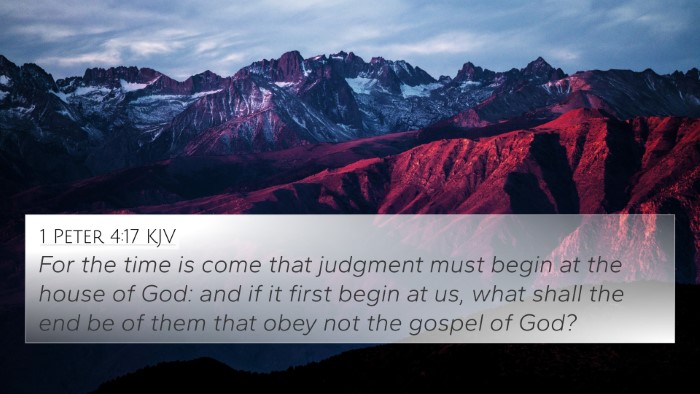Understanding Obadiah 1:16
Obadiah 1:16 states, "For as you have drunk upon my holy mountain, so shall all the nations drink continually; yea, they shall drink, and they shall swallow down, and they shall be as though they had not been." This verse captures a moment of divine retribution where the actions of Edom are evaluated in the grand theological narrative of retribution and justice.
Verse Context and Overview
This verse is set against the backdrop of Edom's pride and mistreatment of Israel. The implications of "drinking on my holy mountain" pertain to the Edomites partaking in the celebrations of Israel's fall. They reveled in violence against their brother nation. Understanding this relationship is crucial to unpacking the symbolism and implications of God's judgment.
Commentary Insights
Matthew Henry's Commentary
Matthew Henry emphasizes the theme of divine judgment and the symbolic use of "drinking" here. He illustrates that the act of drinking represents consuming divine wrath. The verse is a prophetic declaration that just as Edom enjoyed themselves during Israel's calamity, they too will face judgment where the nations will be made to drink from the cup of God’s fury. This brings forth the message of inevitable justice against those who oppose God's people.
Albert Barnes' Commentary
Albert Barnes focuses on the broader implications of the prophetic declaration. He suggests that the "drinking" symbolizes a complete engulfment in God’s judgment, where nations who oppose His people will face catastrophic consequences. The act is represented as being both continuous and all-consuming, meaning that the judgment faced will be total with no escape. This theme reflects the holistic nature of God's justice over nations.
Adam Clarke's Commentary
Adam Clarke articulates the historical context, explaining that this judgment falls upon nations connected to Edom who have acted against Israel. He highlights that this verse aligns with the overall theme of the prophetic book, which is God's sovereignty and the destiny of nations. Clarke posits that this serves as a warning to those who partake in evil against God's chosen people.
Theological Implications
In examining the theological implications of Obadiah 1:16, it is evident that the verse calls into question the integrity of nations that act against God's will. The idea of nations drinking from the cup of God's wrath serves as a sober reminder of the consequences linked to one’s actions. This taps into the motif of divine justice seen throughout scripture.
Cross-References for Deeper Understanding
- Psalms 75:8: "For in the hand of the Lord there is a cup, and the wine is red; it is full of mixture; and he poureth out of the same: but the dregs thereof, all the wicked of the earth shall wring them out, and drink them." This ties into the theme of divine retribution.
- Isaiah 51:17: "Awake, awake, stand up, O Jerusalem, which hast drunk at the hand of the Lord the cup of his fury; thou hast drunken the dregs of the cup of trembling, and wrung them out." This verse parallels the sense of judgement experienced by Israel.
- Jeremiah 49:12: "For thus saith the Lord; Behold, they whose judgment was not to drink of the cup have assuredly drunken; and art thou he that shall altogether go unpunished?" This reinforces the theme of inevitable judgement related to nations’ actions against God’s people.
- Revelation 14:10: "The same shall drink of the wine of the wrath of God, which is poured out without mixture into the cup of his indignation." This connects to the concept of divine judgment found in Obadiah.
- Ezekiel 36:3: "Therefore prophesy and say, Thus saith the Lord God; Because they have made you desolate, and swallowed you up on every side, that ye might be a possession unto the residue of the heathen..." This highlights the consequences faced by nations amidst God’s justice.
- Isaiah 34:5: "For my sword shall be bathed in heaven: behold, it shall come down upon Idumea, and upon the people of my curse, to judgment." This verse aligns with the specific judgment against Edom.
- Amos 1:11-12: "Thus saith the Lord; For three transgressions of Edom, and for four, I will not turn away the punishment thereof..." This reinforces the theme of Edom’s due punishment, echoes of Obadiah’s message.
Thematic Connections
To appreciate the depth of Obadiah 1:16, one must comprehend the interconnectedness of Biblical themes. The themes of retribution, justice, and divine sovereignty resonate throughout scripture. These themes are vividly illustrated in the connections between the Prophets and Revelatory texts where God's judgment and grace are pivotal.
Conclusion
Obadiah 1:16 serves as a powerful reminder of the serious nature of divine judgment. The comprehensive cross-referencing elucidates the importance of understanding the consequences of actions toward God's people. Through diligent study of these connections and themes, believers can grasp the theological significance of such proclamations and draw parallels with their lives today.
Resources for Further Study
For those looking to delve deeper into cross-referencing Biblical texts, various tools are available:
- Bible Concordance: A helpful tool for finding specific verses and their meanings.
- Cross-Reference Bible Study: Methodologies on how to use cross-references effectively.
- Bible Reference Resources: Useful resources for understanding the connections among scriptures.
- Comprehensive Bible Cross-Reference Materials: Tools and guides for an in-depth cross-reference study.
